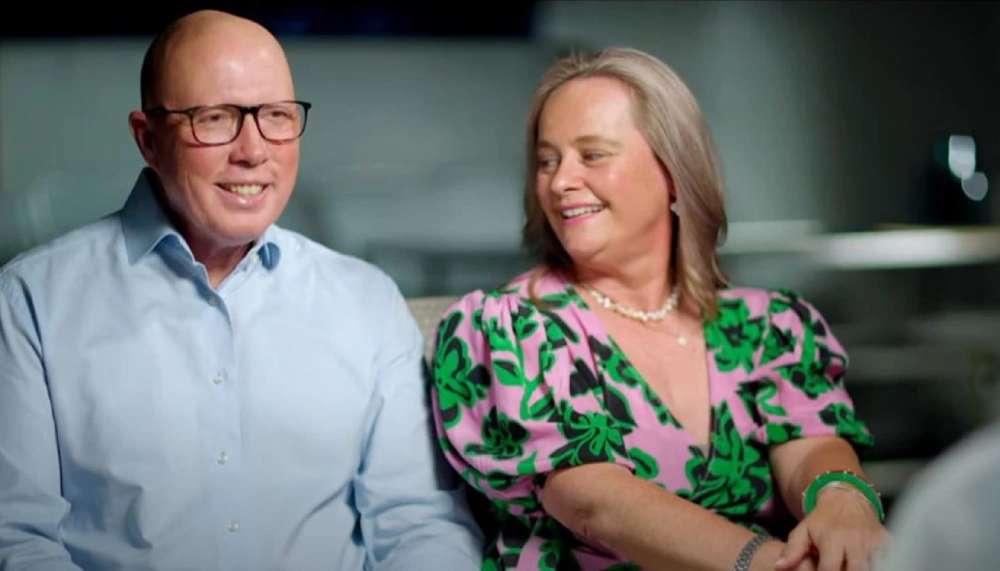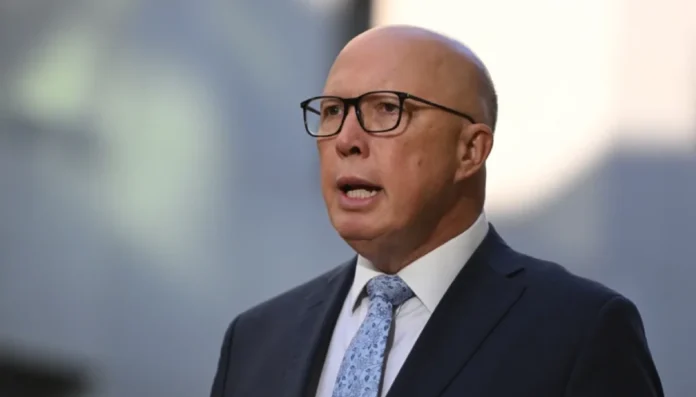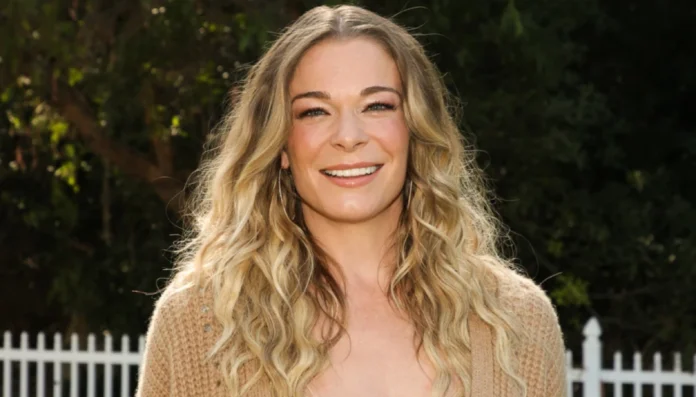As Australian politics continues to evolve, many wonder about the financial standing of key political figures. Peter Dutton, a prominent Australian politician and former Leader of the Opposition, has built substantial wealth throughout his career. This article examines Peter Dutton’s net worth, financial history, and the sources of his wealth based on public records and credible reports.
What Is Peter Dutton’s Net Worth in 2025?
Peter Dutton’s net worth in 2025 is estimated at around $30 million. This figure reflects his wealth accumulated through decades of property investments, business ventures, and his political career earnings.
His financial portfolio primarily consists of real estate investments, including residential homes, commercial properties, and childcare centers. These investments form the backbone of his wealth.
Dutton has completed at least 26 property deals over 35 years, with transactions totaling more than $30 million. His business ventures and parliamentary salary have also contributed to his overall wealth.
Most of his assets are held through family trusts, corporate entities, and self-managed superannuation funds. This structure provides legal tax advantages and a level of privacy regarding his financial affairs.
Despite his significant wealth, Dutton maintains a relatively modest lifestyle. He lives on a rural farm with his family and avoids flashy spending that many associate with wealth.
Early Life and Career Before Politics
Born in Brisbane on November 18, 1970, Peter Dutton grew up in the northern suburb of Boondall. His early life was shaped by working-class values and a strong work ethic.
Dutton began working at a local butcher shop after school from around age 12. This early job experience, while possibly not entirely legal as he later admitted, helped develop his work ethic.
His parents separated shortly after he finished high school. This family change would later influence his perspectives on family structures and values.
After completing his education at St. Paul’s School in Bald Hills, Dutton joined the Queensland Police at age 18. He served as a police officer for nearly a decade.
During his police career, he worked in the drug squad and sex offenders squad. These experiences shaped his later tough stance on law enforcement issues as a politician.
Dutton left the Queensland Police in 1999 at the rank of detective senior constable. His departure was reportedly prompted by a car accident during a surveillance operation that affected his confidence.
Political Career and Earnings
Dutton’s political journey began early when he joined the Young Liberals at age 18. His first attempt at politics came at 19 when he unsuccessfully ran for state parliament.
His successful entry into federal politics came in 2001 when he won the seat of Dickson. He defeated high-profile Labor MP Cheryl Kernot in what was considered a key target seat.
Over his nearly 24-year parliamentary career, Dutton held numerous ministerial positions. These included roles as Minister for Health, Home Affairs, and Defence.
Dutton became Leader of the Opposition in 2022 after the Coalition’s election defeat. This position came with increased salary and responsibilities.
His political career ended in 2025 when he lost both the federal election and his own seat of Dickson. This marked a significant turning point in Australian politics.
After serving for almost 24 years in parliament, Dutton qualified for a pension of approximately $258,000 annually. This provides him with ongoing financial security.
Real Estate and Property Investments
Property investments form the cornerstone of Peter Dutton’s wealth. His real estate portfolio has included high-value homes, commercial properties, and childcare centers.
Dutton began investing in real estate in the early 1990s across southeast Queensland. His strategy focused on both residential and commercial properties with growth potential.
In 2000, he co-founded Dutton Holdings with his father. This business focused on buying, renovating, and converting buildings into childcare centers.
A significant transaction occurred in 2002 when Dutton Holdings sold three childcare centers to ABC Learning. The company continued to receive rental income of $100,000 from these properties.
Dutton’s portfolio expanded to include a large family farm in Dayboro, purchased for about $2.1 million in 2020. This property serves as both an investment and his family home.
Overall, Dutton has been involved in at least 26 property deals with a total value exceeding $30 million. His gross profits from these transactions are estimated at just under $7 million.
Asset Structure and Financial Management
Peter Dutton’s financial holdings are primarily structured through family trusts and corporate entities. This arrangement provides tax efficiency and privacy protection.
The use of self-managed superannuation funds forms another key part of his wealth management strategy. These vehicles offer tax advantages while maintaining control over investments.
Childcare centers proved to be particularly profitable investments for Dutton. These businesses generated significant rental income and capital appreciation over time.
His asset structure makes full public scrutiny difficult. Financial journalists note this complexity distinguishes him from politicians with more transparent asset portfolios.
Despite speculation about higher figures, credible financial analysis places Dutton’s net worth at around $30 million. Some online forums suggest much higher figures without substantiation.
Financial records indicate his property portfolio has shifted significantly in recent years. In 2020, he reportedly sold properties valued at $12 million, possibly rebalancing his investment strategy.
Lifestyle and Personal Spending

Despite his substantial net worth, Peter Dutton maintains a surprisingly modest lifestyle. He resides on his rural farm property rather than in a luxury mansion or penthouse.
Friends and associates describe him as financially conservative in his personal spending habits. He avoids the ostentatious displays of wealth common among the financially successful.
Dutton’s practical approach to daily life reflects his police background and working-class origins. This contrasts with the lavish spending often associated with wealth of his magnitude.
His family life centers around his wife Kirilly and their children. Together they enjoy a relatively private existence away from the spotlight when not engaged in political activities.
The Dayboro farm property serves as both home and investment. This dual-purpose approach to real estate reflects his practical attitude toward wealth management.
Public appearances rarely feature luxury cars, designer clothes, or extravagant accessories. This reinforces his image as financially successful but personally restrained.
Controversies and Public Perception
Public perception of Dutton’s wealth has been mixed. Some view his financial success as evidence of good business acumen and investment skills.
Others have questioned the extent and sources of his wealth. Online forums occasionally speculate about much higher net worth figures without offering credible evidence.
His career in politics while maintaining substantial business interests has drawn scrutiny. Questions about potential conflicts of interest have been raised by political opponents.
The complexity of his financial arrangements through trusts and corporate structures has prompted debate. Critics suggest this lacks transparency, while supporters see it as prudent financial management.
Dutton’s electoral defeat in 2025 shifted public focus from his wealth to his political legacy. Financial discussions gave way to analysis of his impact on Australian politics.
His parliamentary pension of $258,000 annually also generated public discussion. Some questioned the generosity of political pensions while others viewed it as earned compensation for public service.
Comparison to Other Politicians
Compared to other Australian politicians, Dutton stands out for his significant private wealth. Most of his colleagues have more modest financial profiles centered on their parliamentary salaries.
Former Prime Minister Malcolm Turnbull, with an estimated net worth of over $200 million, remains one of Australia’s wealthiest politicians. Dutton’s $30 million places him in the upper tier but not at the very top.
Unlike many politicians who accumulate wealth after leaving office through speaking engagements and consulting, Dutton built his fortune alongside his political career through business ventures.
His real estate investments distinguish him from colleagues who primarily invest in more traditional portfolios of stocks and bonds. Property development became his particular specialization.
The structure of Dutton’s wealth through family trusts and business entities follows patterns seen among wealthy politicians globally. This approach maximizes financial advantages while minimizing public disclosure.
International comparisons show Dutton’s wealth places him among the more affluent democratic politicians globally, though far behind American and European political figures with fortunes in the hundreds of millions.
Future Financial Outlook
Following his 2025 electoral defeat, Peter Dutton’s financial future likely remains secure. His substantial property portfolio and investments provide ongoing income streams independent of politics.
His parliamentary pension of approximately $258,000 annually offers financial stability. This tax-advantaged income represents a significant portion of his annual earnings going forward.
Management of his existing real estate portfolio will likely remain a focus. Property values in Queensland continue to appreciate, potentially increasing his net worth further.
New business ventures may emerge as Dutton transitions to private life. Many former politicians leverage their experience and connections into consulting or advisory roles.
Financial privacy will likely increase now that he’s no longer required to disclose interests as a parliamentarian. This may make tracking future wealth changes more difficult.
His decades of business experience and political connections provide opportunities for board positions or advisory roles. These typically offer substantial compensation for limited time commitments.
Conclusion
Peter Dutton’s net worth of approximately $30 million in 2025 reflects a lifetime of strategic investments and careful financial management. His wealth primarily derives from property investments and business ventures.
His financial story demonstrates how political careers can coincide with successful business activities. Dutton balanced public service with private enterprise throughout his working life.
The structure of his wealth through trusts and corporate entities follows common practices among the financially successful. These arrangements optimize tax efficiency while maintaining privacy.
Despite his wealth, Dutton maintained a relatively modest personal lifestyle. This approach contrasts with the lavish spending often associated with multi-millionaire status.
His 2025 electoral defeat marks a transition from public to private life. Financial interests will likely take greater precedence as political responsibilities end.
Dutton’s financial journey offers insights into wealth building through property investment and business development. His approach demonstrates the potential for long-term wealth accumulation through strategic real estate holdings.
For those interested in Australian political figures and their finances, Peter Dutton’s net worth represents an interesting case study in balancing public service with private business success.



